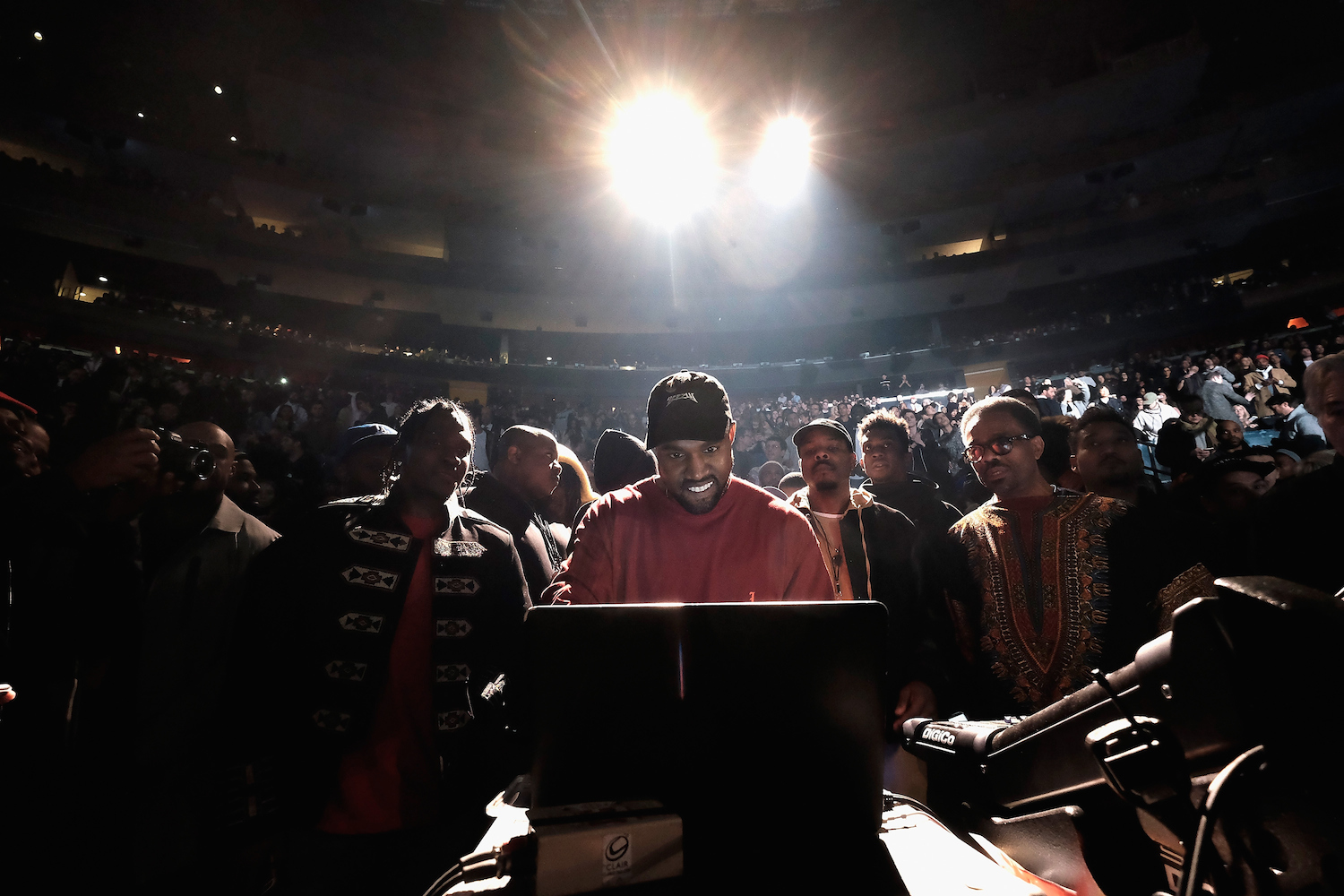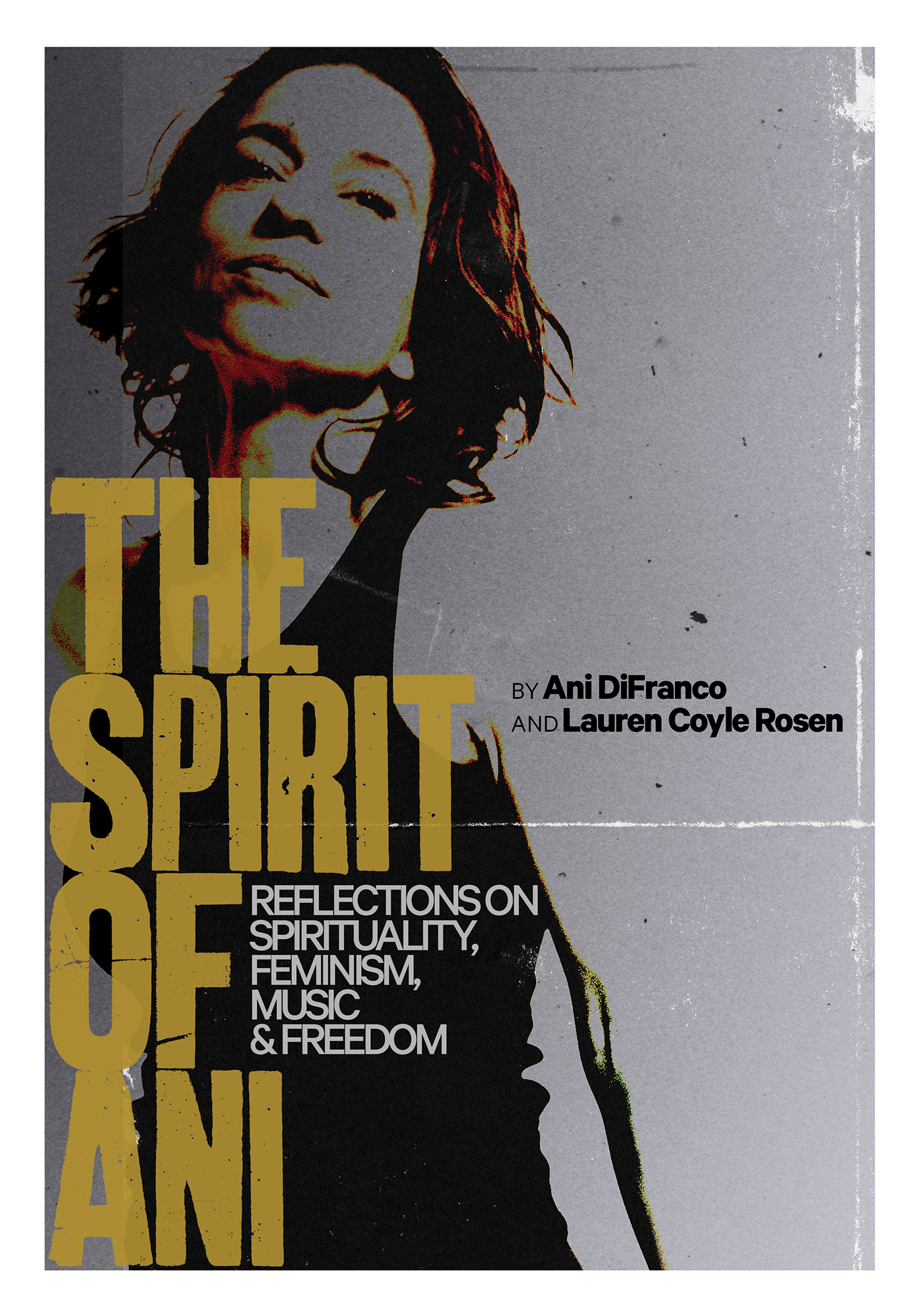For someone so often depicted as self-centered, Kanye West has a powerful tendency to give others credit where it's due. At the tail end of the Madison Square Garden listening party for The Life Of Pablo, he went on a thank-you spree so enthusiastic (from The-Dream to El deBarge) that he swore he'd wind up seething in the back if he forgot anyone who helped him along the way. And while he emphasized that "one of the hardest things to do" was to convince clothing, art, and music world collaborators that a rapper's design sense would work for them -- the TLOP premiere doubled as his Yeezy Season 3 fashion launch -- he also found a wide array of co-signs to make his spectacle feel substantial. The pop-world all-stars got plenty of all-caps reactions as the (technically hinky) stream unfolded, with Chance The Rapper's "Ultralight Beam" verse and Young Thug's appearance on "Highlights" getting some of the longest strings of exclamation points. But Yeezy knows how to put an ensemble cast together, especially when his increasingly avant-pop sense of visual and sartorial style is concerned. Here are some increasingly notable names that are about to be dropped a whole lot more often.
Vanessa Beecroft (visual fashion presentation)
Early last year, the launch of West's Yeezy Boost fashion line was coordinated by Beecroft, an Italian-born, Los Angeles-based multimedia performance artist who's worked in nearly every medium thinkable. Her own fashion-world intersections are worth noting -- nearly 10 years before she collaborated with the man who called himself "Kan, the Louis Vuitton Don" on "Last Call," Beecroft staged an installation featuring her characteristically blank, unsettling nude female models in Paris' Espace Louis Vuitton store. If her conceptual statements about the bodies of women and the African diaspora often prove polarizing -- case in point, the fallout from her attempts to adopt a pair of children in the Sundance-screened The Art Star And The Sudanese Twins -- her visual sense, often reliant on the reduction of people to orderly rows of blank-faced mannequins, made for a powerful sight. The models on the floor's twin platforms seemed to be the only people in the Garden who were seemingly unmoved -- at least until they raised Black Power fist.
Peter de Potter (album art)
It took approximately zero time for the artwork of TLOP to go memetic, possibly because it seemed both instantly iconic and easy to reproduce; there's something a bit cut-and-paste glitchy about its aesthetic that practically begged for it. But Peter de Potter, a Belgian artist and cohort of fashion designer Raf Simons, seems to operate on those particular terms. (As he put it to Interview in 2011: "When I was 18, I found myself dulled in a little provincial town—all monotony and mundane events, while all I wanted was to grab the master key to Andy Warhol's Factory.") As part of a visual-arts contingent that sees Tumblr as an early step towards art-world legitimacy, his collage-pileup style reworks generation-old visual signifiers (hardcore-flyer typography, hacked-up Polaroids, smeared photocopy tones) into bleary, narcotized erotica. Previous sets -- Angelic Starts, Routine Routine, and I Am an Image Machine (all NSFW to some extent) -- recontextualize publicly-posted social-media images, making even the most deliberately staged ones feel accidental and inadvertently voyeuristic, filtered and distorted past the point of recognizable place and time. Of course West debuted the album art on Twitter -- and the circle started up all over again.
Desiigner (appears on "Father Stretch My Hands")
A year and a half ago, he was rapping under the name Dezolo on a Migos-ish cut called "Danny Devito" (though the Desiigner alias took over soon enough). Two months ago, he released debut single "Zombie Walk," which did its damnedest to get a foothold on some Future-ism to mixed reaction. Then "Panda" dropped a couple weeks later, clocked a million-plus on YouTube alone, and saw the Brooklyn teenager feeling out his way closer to a more unique voice: soft-spoken, self-assured flaunting that escalates from sleepy-eyed to staggering before you can blink. He still has a ways to go before he shuts up the "is this an EVOL bonus cut" talk, but the recent G.O.O.D. Music signee should at least have some solid support behind him now that his "Father Stretch My Hands" verse is in the spotlight.
Frank Dukes (co-produced "Real Friends")
Dukes (nee Adam Feeney) is like the hip-hop world's equivalent of a veteran session player -- rarely one of the names that jumps out from the liner notes, but connected enough that if you name a star, Dukes stands at least a 50-50 chance of having worked with them. (There's Drake, Eminem, 50, Ghost, and Rihanna, for starters.) The Canadian multi-instrumentalist who won a Grammy for Marshall Mathers LP 2, fused Ghostface with BADBADNOTGOOD on Sour Soul, and hit recent paydirt co-writing "Charged Up" joined up with Mobb Deep icon Havoc and fellow Torontonian Boi-1da to help give "Real Friends" its mournfully introspective glow, all bass and minimal drums. There's nothing easily detectable in the beat that you can definitively pinpoint on Dukes, which is fine -- he works best in team efforts, having already gone so far as to assemble a sample-source portfolio (The Kingsway Music Library) dedicated to giving other producers pieces of his own sensibility to rework any way they want.
Cashmere Cat (co-produced "Wolves")
Norwegian DMC-battler turntablist turned oddball producer Magnus Høiberg has been operating under his Cashmere Cat alias since 2012's Mirror Maru, his style restlessly shifting from that release's ramped-up vacu-laser trap to the more delicate and twinkly likes of 2014's Wedding Bells. There's generally still been a through-line in his work -- sort of askew, brightly colored crystalline Cartoon Network bangers -- that's wound up not just sounding characteristically odd on its own but burbling under Ludacris, Wiz, and Jeremih ("Party Girls") or Ariana Grande ("Adore"). But there's no money-counter snares or flanged Silly Putty chirps on "Wolves," the album's frigidly seething closer -- just some labored-breathing fuzz bass, and a piercing yet miles-distant howling wail of a background vocal, and a synth-harp finale that sounds less like a coda than a bleeding out. Høiberg's range just keeps expanding, it seems.
Sinjin Hawke (co-produced "Wolves")
A year before Belgian label Pelican Fly put out Mirror Maru, it released Montrealer Sinjin Hawke's debut EP The Lights -- a barrage of abstract day-glo crunk that would kickstart a career as wildly ricocheting as his kickdrums. As helpful as it might be to siphon his sound into an uncanny kinship with Cashmere Cat's -- complete with a "Party Girls" remix -- it's probably even more helpful to aim yourself towards this joyfully frenetic Boiler Room DJ set, where his mix of footwork, bass, acid, electro, and hip-hop is a strong showcase of what turns his gears. That makes his own involvement in "Wolves" even more surprising than Cashmere Cat's -- did he sign on for T.L.O.P. hoping to crank up the Yeezus abrasion? If so, he adapted well to this new direction.
Mr. Fingers (sampled on "Fade")
Hardrive (sampled on "Fade")
Of course the single biggest producer-MC to emerge from Chicago has a love of house music stashed in his back pocket -- and not just the Ed Banger/Daft Punk French touch that surged through key points in Graduation and Yeezus. Kanye called T.L.O.P. "gospel" at one point during his MSG show, which it is much in the same way vintage Chicago house was, all hymns to rhythm and hosannahs to body movement. Larry Heard, the Mr. Fingers of Fingers Inc., is widely regarded as the forefather of deep house on the basis of 1986's luxurious "Can You Feel It?" The previous year's "Mystery of Love" gets put through its paces on "Fade," its chunky bassline pitched down into a dread-stoking skulk that sounds like its more well-known successor's tall, sinister shadow. By the time "Little" Louie Vega helped raise house's connection to classic East Coast disco from an implicit connection to an explicit one, the Master at Work was riffing off Chicago's '80s legacy as well as '70s NYC's. "Deep Inside," recorded under his sporadic alias Hardrive, explodes out of speakers thanks to the vocals of church-raised Barbara Tucker, whose titular hook is the flourish that pushes "Fade" over the edge.
Junie Morrison (sampled on "No More Parties in L.A.")
Johnny "Guitar" Watson (sampled on "No More Parties in L.A.")
Larry Graham (sampled on "No More Parties in L.A.")
Respect due to Madlib, whose indie-favorite status and Angeleno-legend portfolio took way too long to spread to this kind of household-name potential (though if Madvillainy, Pinata, and Champion Sound were the closest he got collaboratively, there'd be little point in complaining). The man's been a titan amongst cratediggers since the Clinton administration, and there's more to his "No More Parties in L.A." beat than just a nice, murky vintage-funk low end; it's actually a canny bit of ex-post-facto supergrouping. Keyboardist Junie Morrison, one of R&B's most treasured weirdos, is responsible for funkily worming his way into hip-hop's vocabulary with the Ohio Players and ramping up P-Funk's outlandishness where such a feat could have been considered impossible previous to One Nation Under a Groove. The late-'70s comeback/reinvention of Johnny "Guitar" Watson -- from underrated R&B cult hero to blues-funk hitmaker -- made him another hip-hop favorite; the "Superman Lover" backdrop of "Supa GFK" makes the "Mighty Healthy" lift in "No More Parties" far from the first time we've heard Ghost juxtaposed with that slick guitar twang. And then there's bass god Larry Graham, whose percussive slap-style notes have boosted beats whether they come from his time with Sly & The Family Stone or his years leading Graham Central Station; iconoclastically enough, Madlib goes for the underrated element of Graham's voice instead ("I just keep on lovin' you baby..."), where it's posed as a retort/addendum to Yeezy's familial frustrations.
Sister Nancy (sampled on "Famous")
There are two lineages worth noting here. One of them is the rarefied status "Bam Bam" holds in hip-hop: Nancy's earworm melody was memorably interpolated in the chorus of Lauryn Hill's "Lost Ones," while the danker-than-dank Sly and Robbie production was snapped up in three high-profile early '90s cuts by Main Source ("Just Hangin' Out"), Pete Rock & C.L. Smooth ("The Basement"), and Too $hort ("Blowjob Betty"). Yeezy and Swizz Beats find a disorienting new context for it, pushing Sister Nancy's voice out as a sort of taunting interlude with the melody chopped up, doubled back and twisted inside-out.The other lineage worth noting is Sister Nancy herself, a titan of early '80s dancehall who was up there with Yellowman as one of the era's big stars and a pioneer as one of the first female dancehall DJs. Her recordings became sporadic after her '82 peak, but "Bam Bam" and the album it came from, One, Two, are more than enough to justify her work as more than just sample fodder.
Father's Children (sampled on "Facts")
"Facts" was one of several recent tracks supposedly earmarked for T.L.O.P. when it was still in [TITLE TK] mode, and its status was constantly in flux before a last-minute revision finally put a reworked version on the album proper. Why this is isn't entirely clear, but there's a chance some good old-fashioned label beef is behind it -- just not the kind of label beef old heads might be used to. Father's Children were an EWF-esque disco-soul-funk-jazz group out of D.C. that cut an unreleased record in 1973, and if there's a lost R&B album from the '70s locked away in a vault somewhere, odds are that sooner or later Numero Group would get ahold of it and reissue it to an audience of borderline-cultish enthusiasts. Numero released Who's Gonna Save the World in June of 2011. And not two months later, Numero's website announced a sample-clearance fiasco centering around a misattributed publishing credit for Syl Johnson's "Different Strokes," which they'd republished as part of their Complete Mythology box set. The sampling track in question? Kanye West's "The Joy," which had been added to Watch The Throne as a bonus track. The extended snippet of Father's Children cut "Dirt And Grime" on "Facts" -- warped and distorted into something far more sour than its source material -- might have reopened old wounds. Or maybe "Facts" just wasn't good enough to make the album until Kanye gave it a zero-hour revision. Either way, here's hoping the right people got paid.






